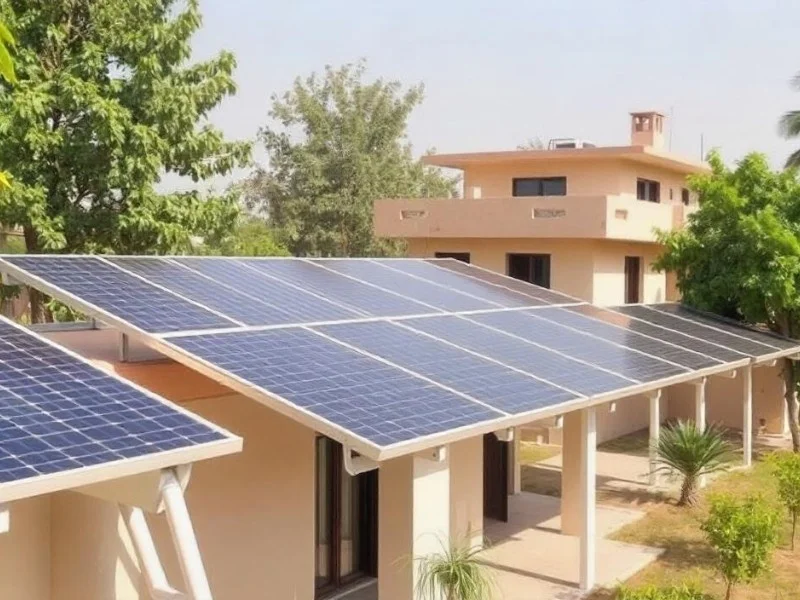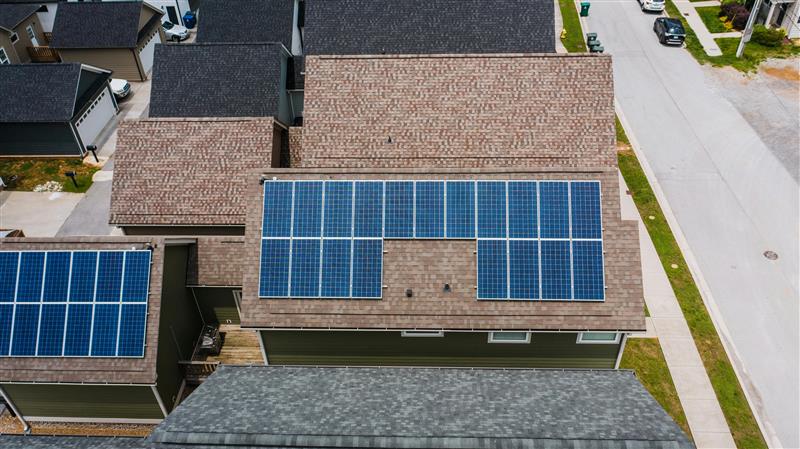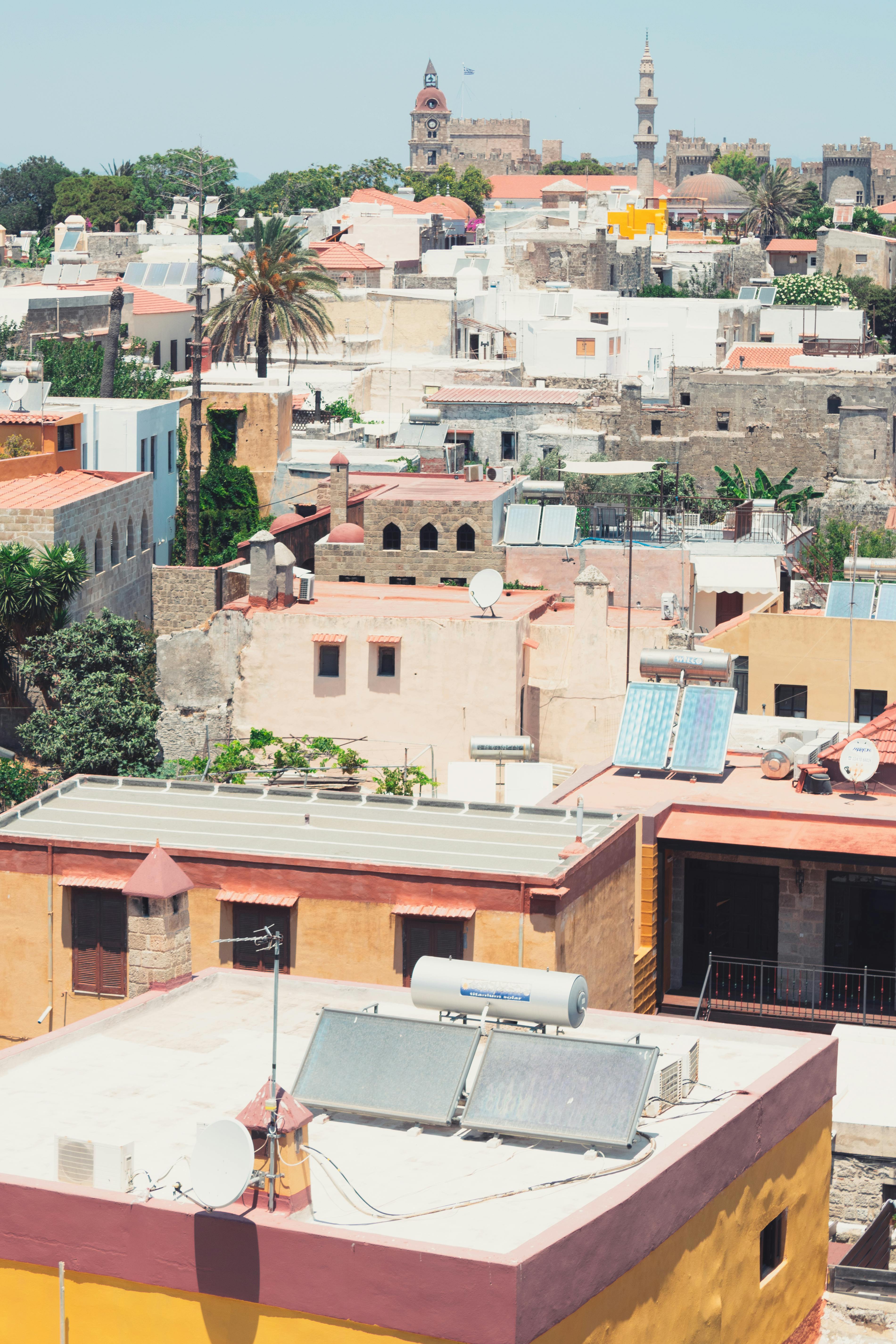Thinking About Going Solar? 5 Key Factors Every Homeowner Must Check
Getting rooftop solar for your home is a smart, sustainable, and future-oriented decision not a passing “fad.” It gives homeowners access to renewable energy, eco-friendly living, and freedom from rising monthly electricity bills.
Yet, many homeowners hesitate because they lack clarity on common questions such as:
- Is solar right for my home?
- What are the benefits of solar panels?
- How much does solar cost?
- How do I choose the right solar panels?
If you’ve struggled with these questions, this blog will help you evaluate whether solar is the right fit for your home.
Benefits of Solar Panels for Homes
1. Reduced electricity bills: With solar power system for home you don't just create your own energy but also cut down on the monthly utility bills.
2. Increase property value: Homes with solar panels have higher resale value and attract responsible, eco-conscious buyers.
3. Energy independence: With solar rooftops, you are protected from rising electricity tariffs and grid outages.
4. Government-backed savings: Avail government solar subsidies and tax incentives (in selected cases) that make the switch from conventional energy to solar more affordable.
5. Low maintenance, long-term returns: With minimal upkeep, solar panels can last 25+ years. Which means access to clean energy and consistent savings for decades.
.jpg)
5 Things to Consider Before Installing Residential Solar Panels
While the solar rooftop benefits may have given you a fair idea of why you should go solar, there are a few things every homeowner must consider before getting a solar rooftop for home.
1. Roof Condition
As unimportant as it may sound, your roof’s structural condition is crucial before installing a solar power system for home. Your roof must be in good condition and capable of supporting the weight of solar panels for at least 20–25 years. If your roof is old or made with brittle materials like asbestos cement or clay tiles, it may require maintenance or replacement before solar panel installation. Additionally, south-facing roofs with minimal obstructions are known to generate better solar output in the long run. Consult an EPC provider to assess your roof condition before installing rooftop solar panels.
2. Sunlight Availability
Uninterrupted sunlight is a crucial factor in deciding whether solar is right for your home. Trees, nearby buildings, or water tanks that block sunlight can drastically reduce energy generation. If you live in a region receiving 4-5 hours of direct sunlight daily, your home is ideal for efficient energy production. Also consider seasonal variations because even small shading in winter can affect your annual energy output.
3. Energy Bills
Understand your energy consumption pattern to estimate the solar panel ROI better. Check your electricity usage monthly or annually to estimate the required solar capacity (in kW). Households with higher consumption often benefit the most from solar panel ROI.
For example, if you use between 300 and 400 units per month, your annual power cost could exceed ₹20- 24,000. With solar, you may reduce it by 60–80%, depending on system size and usage. You should also compare tariff rates, as rising electricity costs only strengthen your case for going solar.
4. Solar Panel Installation Cost
The solar panel installation cost in India depends on your system’s size, type, and installation complexity. While the initial investment in solar is significant, the long-term savings and low maintenance costs balance it out. The ROI on solar power systems for homes also depends on system size; larger systems have higher upfront costs but eventually offer better cost-per-unit efficiency.
Thankfully, there are multiple solar financing options like residential solar loan, leases, or PPAs that can make solar affordable. To make the right choice, seek guidance from an authorized EPC to understand which option suits your needs. If not, you can also use a solar savings calculator to estimate costs and returns. In any case, research and forethought are mandatory to make a smart choice.
5. Government Incentives
Government solar subsidies in India make going solar far more affordable for homeowners. Check what kind of government solar subsidies you can take advantage of. Homeowners can get up to 40% subsidy for systems up to 3 kW and 20% for up to 10 kW. Authorized solar EPCs can also help you navigate subsidy paperwork and approvals easily.
To benefit from these schemes, ensure you have proper documents ready. Aadhaar and PAN card copies, recent electricity bills, property ownership proof, bank details, net metering application, and vendor information to name a few. Proper documentation ensures a seamless process, making your switch to solar truly hassle-free.
Final thoughts
Rooftop solar is transforming residential living in India, making it one of the smartest long-term investments for homeowners. The considerations listed above will help you understand whether solar panel installation is right for your home.
If you’re still unsure, consult authorized EPCs or trusted solar providers like Aerem Solar Solutions. Aerem offers transparent guidance, customized solutions, and financial clarity to make your solar journey simple, secure, and sustainable.

.webp)
.webp)
.webp)







.jpg)
.jpg)




.jpg)





.jpeg)












.jpg)


.png)
.png)
.png)
.png)
.png)
.png)


.png)


.jpg)
